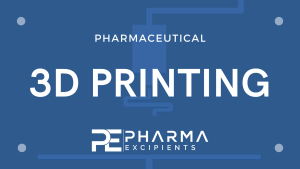3D-printed prednisolone phosphate suppositories with tunable dose and rapid release for the treatment of inflammatory bowel disease

Established medicines are often not tailored to the needs of the pediatric population, causing difficulties with administration or dosing. Three-dimensional (3D) printing technology allows novel approaches for compounding of personalized medicine, as is exemplified in this study for the automated compounding of rectal preparations for children. We investigated the material requirements to print prednisolone phosphate-loaded suppositories with tunable dose and rapid drug release for the treatment of inflammatory bowel diseases. Three formulations containing 4 % w/w prednisolone sodium phosphate (PSP) and different amounts of hydroxypropyl cellulose (HPC) and mannitol as excipients were printed as suppositories with a fused deposition modeling (FDM) 3D-printer.
Highlights
- 3D-printing can be utilized for automated compounding of prednisolone phosphate suppositories.
- The dose of 3D-printed suppositories can be tuned by changing infill density or dimensions.
- Adding mannitol as a pore-former to 3D-printed suppositories leads to rapid drug release.
Dissolution studies showed that the PSP release rate was increased when higher weight fractions of mannitol were added as a pore former, with 90 % drug release within 30 min for mannitol 48 % w/w. We further printed suppositories with 48 % mannitol with different infill densities and dimensions to tune the dose. Our findings demonstrated that 3D-printed suppositories with PSP doses ranging from 6 to 30 mg could be compounded without notably affecting the dissolution kinetics, ensuring equivalent therapeutic efficacies for different doses.
Download the full article as PDF here 3D-printed prednisolone phosphate suppositories with tunable dose and rapid release for the treatment of inflammatory bowel disease
or read it here
Chemicals
Prednisolone sodium phosphate (PSP) was purchased from Fagron (Rotterdam, The Netherlands). Prednisolone was purchased from Spruyt Hillen (IJsselstein, The Netherlands). Klucel EF hydroxypropyl cellulose (HPC) with an average molecular weight of 80,000 Da and PEARLITOL 200 SD (mannitol) were kindly donated by Barentz (Hoofddorp, The Netherlands).
L.I. Kocabas, S. Ayyoubi, M. Tajqurishi, J. Quodbach, T. Vermonden, R.J. Kok, 3D-printed prednisolone phosphate suppositories with tunable dose and rapid release for the treatment of inflammatory bowel disease, International Journal of Pharmaceutics, Volume 649, 2024, 123639, ISSN 0378-5173, https://doi.org/10.1016/j.ijpharm.2023.123639.
Read more on the overview of pharmaceutical 3D printing here:


